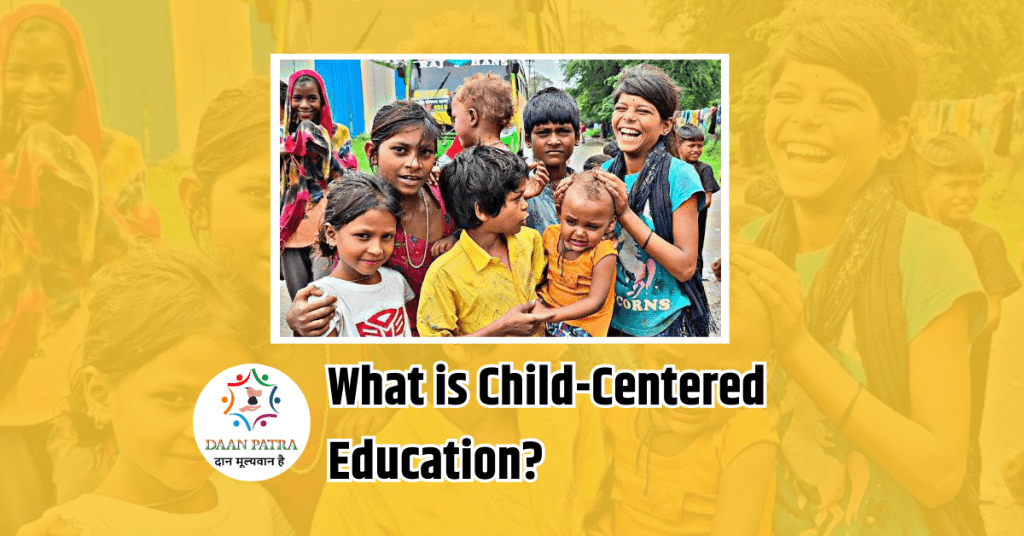Unlocking the ability of Child centered education :
As we all know every child is unique and different. So why to educate all of them in the same way? Hence here child centered education plays an important role. As the name specifies child centered education, means the education system where children’s interest is at the center.
As per the modern child centered education, it is tailored according to children’s needs and interests. In this way education becomes more playful and children learn at their own pace.
However the traditional method never focused on such things. Following the same curriculum without considering children’s interests leads to boring lectures. As a result many students lose their interest and Drop out from schools.
On the other hand, a child centered curriculum always revolves around what children love. And which leads to growth and overall development of a child. In this approach children actively participate in their learning journey by making their own choices.
Conventional education versus child-centered education
The approach of the conventional education system was one curriculum that fits for all. This type of education system is around textbooks, lectures and examinations. As a result this leads to boring lectures neglecting children’s interest. Not only this but it also limits the development of problem-solving abilities and critical thinking of children.
In contrast Child centered education gives a proper space and unique learning style to the students. And this approach always focuses more on activities which leads to development of critical thinking, creative thinking and overall engagement with the learning process.
Importance and benefits of child centered learning
Now from the above blog we all know what child centered education is, so now let’s learn about its benefits. Child centered education approach holds deep significance and offers several benefits. So let’s take a look on some of the major benefits.
Overall child development
Child centered education focuses on practical learning and hence it leads to overall development of the child. From critical thinking to problem-solving abilities, child-centred education leads to holistic development of the children.
Tailored learning
Every child has different learning abilities and child centered education has recognised it. By providing unique and different learning styles to the children. And this approach provides an learning environment to the children which engage their interest.
Feeling of ownership
Child-centered education allows the children to take their ownership. As a result of this the students start making their own decisions. And they set their own goals which leads to self improvement and development.
Preparing students for tomorrow
As the competition is increasing day by day. Hence it is very important to keep the children updated as per the competition. And child Centre education empower the students to recognise their full potential. Hence this approach prepare the students to face the future complexities.
5 key Characteristics of child centered education
The main essence of child-centered education is creating an environment that encourages individuality. And building the students so that they can face the complexity of the modern world. So let’s dig deep dive into the five key characteristics of child-centred education.
Flexible learning environment
Since rigid traditional education curriculum is very less effective. One that fits in all approaches is quite outdated. Whereas child-centered education provides flexible and adaptable teaching approaches. This technique provide diverse teaching styles allowing the students to fit in as per their needs and requirements.
Adaptability
The learning speed varies from student to student. And child-centered education believes in giving space and time to students to learn at their own pace. Their progress can be slow or can be fast depending upon the adaptability of the child. There is no pressure given on children.
Experiential learning
More we do the experiments, the more we learn. And through experiential learning children automatically develop problem-solving and critical thinking ability. And rote memorization can last four few days or months but experiential learning last for years and all we can see for life time.
Customisation
Tailoring and customizing education as per the individual needs, interest and abilities. Providing unique learning styles can enhance the inner abilities of the children.
Teacher as a facilitator
Instead of becoming an authoritative person, it’s very important to become a guide and a trainer. In a child-centered education system the teachers become the facilitators. And in this way teachers help the students and guide them in a friendly way.
Conclusion-
So at last I would like to mention that there is no one size that fits for all. Hence let’s just ditch the traditional way of educating children and adapt the child centered education approach.
FAQ
- What is the meaning of child Centered education?
Child-centered education is a system where the curriculum is designed keeping the child’s needs in mind. We all want our children to know their real potential and become successful. Hence nothing is better than child-centered education. This will not only help the students to know their potential but also prepare them for future challenges.
- Who created a child-centered approach?
Jean Rousseau is known as the father of child-centered education. According to his theory, if we let the children grow naturally without restrictions They will grow their potential. And children will experience Full freedom and will evolve at every step of their life.
- What are the four pillars of education?
Four pillars of education are
- Learning to know- knowledge acquisition is the basic foundation amongst the all four. This will lead in developing critical thinking on several matters.
- Learning to do – developing skills which are necessary. And it develops the ability to apply they are knowledge in practical life.
- Learning to live together – it is very important to understand others and respect everyone around us. And students should learn multiple languages and know a proper way to communicate
- Learning to be – ability to develop independent decision making skills. From critical thinking to cultural awareness both are very important for overall development of a child.
Related Posts:
- 10 Child Rights in India- A Comprehensive Guide
- What is the Purpose of education and Why It is Important?
- Child Education NGO in Jabalpur
- Child Education NGO in Ujjain
- Underprivileged Children: Why Should We Care About Them


I have a great command of sophisticated language and literature because I am an artist at heart as well as a writer by profession. I am able to constantly produce work of a high quality because of my knowledge. I’m well-known for my versatility and am an excellent writer of both creative and technical content. To write content that is both entertaining and customized, I take the approach of getting to know the interests and preferences of my targeted audience.

